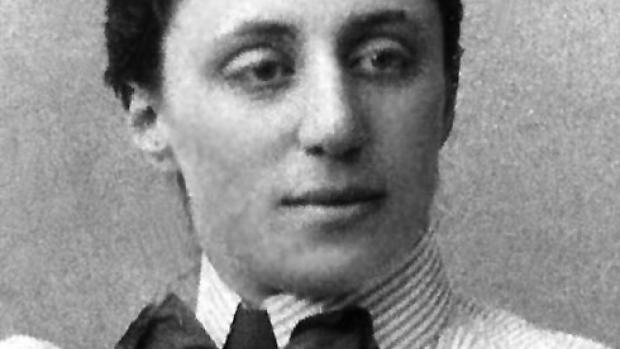Dean Katepalli Sreenivasan Celebrates an Unsung Mathematician
Emmy Noerther Might Be Unknown to the General Public, but She‘s Earned a Place in Mathematics History

When Dean Katepalli Sreenivasan was invited to lecture at Israel’s Bar Ilan University in June 2016 to deliver two lectures in memory of Emmy Noether, he accepted the invitation very readily. As a Jewish woman who worked in a place like Göttingen — an intellectual and academic epicenter of mathematics and physics then at its zenith — during a period in history when both her gender and heritage were seen as marks against her, Noether did great mathematics and created a serious group around her. “On balance,” Sreenivasan said, “the community owes her a lot and the lectures are certainly a great way to celebrate her spirit.”
Noether was born on March 23, 1882, in Erlangen, Germany. Her father, Max, was a respected professor of math at universities in Heidelberg and Erlangen, and one of her brothers, Fritz, gained a modicum of recognition as an applied mathematician. Despite her own growing interest in mathematics, Noether was relegated to studying subjects thought to be more suitable for a young lady — such as English, French and piano.
Banned from formally attending the University of Erlangen because of her gender, Noether audited classes, and she ultimately surprised her professors by doing so well she was awarded the equivalent of an undergraduate degree. Emboldened by her success, she sought similar entry to the University of Göttingen, where she attended lectures by such notable figures as Felix Klein and David Hilbert. (Soon after her time there, the university lifted restrictions on women's attendance.)
Noether ultimately returned to Erlangen, where she earned her doctoral degree and found mentors who lobbied for her to be given a paid faculty position. While they were successful in getting her an informal post at the University of Erlangen's Mathematical Institute, convincing administrators that she deserved a salary was more difficult, and Noether taught for seven years with no pay.
Lured back to the University of Göttingen by Klein and Hilbert, Noether found herself in the same predicament: toiling for no pay, forced to rely on financial support from her family, and often giving lectures that were advertised under Hilbert’s name so as to draw an audience. Despite that ignominy, she thrived intellectually there, proving what is now known as Noether’s Theorem, which is considered by experts to be crucial to the development of modern physics. A New York Times reporter once wrote, “What the revolutionary theorem says, in cartoon essence, is the following: Wherever you find some sort of symmetry in nature, some predictability or homogeneity of parts, you’ll find lurking in the background a corresponding conservation — of momentum, electric charge, energy or the like ... Some of the relationships to pop out of the theorem are startling, the most profound one linking time and energy.”
So devoted did her students become that they were known around town as “Noether’s Boys,” and in 1919, in the wake of the German Revolution and shifting social mores, the university allowed her to apply for official tenure. Eventually, she was given the title Lehrbeauftragte für Algebra (algebra lecturer) and even started receiving a salary.
This period of professional satisfaction was sadly short-lived, however. While Noether publicly expressed only mild bemusement when a handful of students arrived in her class wearing Nazi regalia, in 1933, she became one of the first Jewish professors at the institution to be fired. Realizing that she should flee Germany while she was still able, she began seeking academic posts outside the country. With the help of American colleagues aware of her plight, she found a position in Pennsylvania, at Bryn Mawr College, then an all-women school.
Noether had been working at Bryn Mawr for under two years when she died from the complications of an ovarian cyst. Although she had not had the time to build a cadre of “Noether’s Girls” there, she often told colleagues that she felt more fulfilled and gratified than she had ever been in Germany.
Noether, whom Albert Einstein called “the most significant creative mathematical genius thus far produced since the higher education of women began,” was cremated, and her ashes are now interred under a walkway near the M. Carey Thomas Library at Bryn Mawr. Laypeople may not be able to grasp the intricacies of her groundbreaking studies in abstract algebra, but everyone can appreciate the determination and dignity with which she lived her life and pursued her work.




